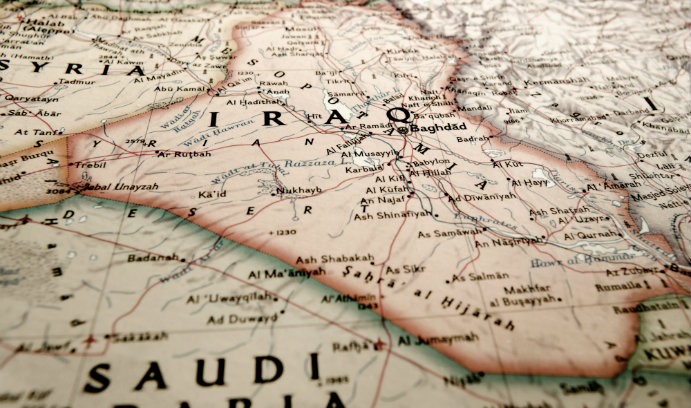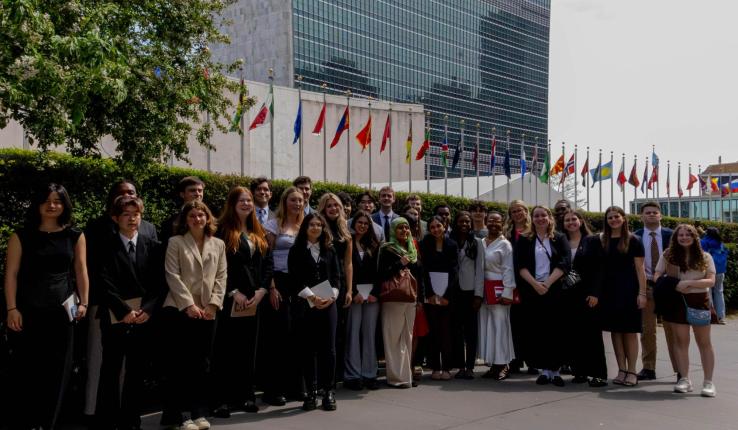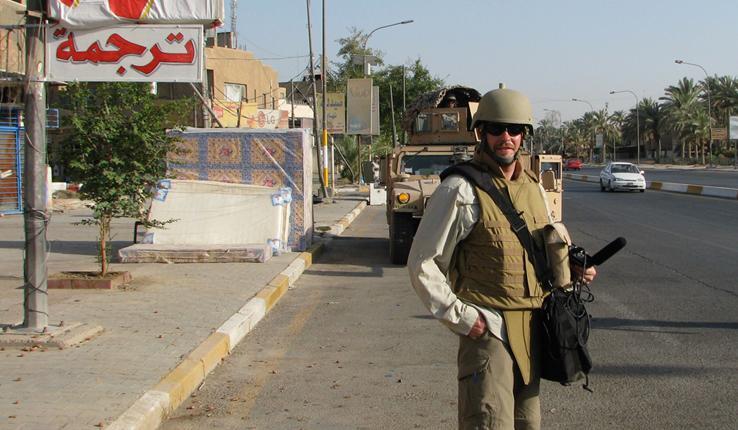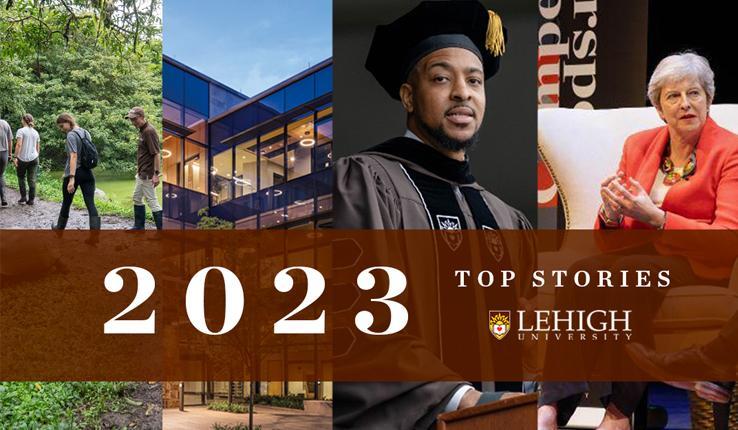After ISIS

Photo credit: iStock
The terrorist insurgent group ISIS is very likely to be crushed in Iraq within the next year, say two Lehigh professors who are experts in the economics and politics of that region. But what happens after that, they say, is far from certain and will be key to whether that nation rises from the ashes or descends further into chaos.
Frank R. Gunter, professor of economics, and Henri J. Barkey, the Bernard L. and Bertha F. Cohen Professor of International Relations, spoke Wednesday at a campus panel discussion on “Iraq and Syria after ISIS.”
Gunter, a senior fellow with the Foreign Policy Research Institute in Philadelphia and a retired colonel in the U.S. Marines, and Barkey, director of the Middle East Program at the Woodrow Wilson Center in Washington, D.C., told an audience of about 40 that the treacherous political and economic conditions in Iraq make it extremely difficult to rebuild a stable society after ISIS.
“ISIS will cease to be a state, but it’s not going to disappear,” Gunter said. “What should be done to ensure there won’t be a Son of ISIS?”
“To break the cycle, logic says to you that there has to be some plan for the day after,” Barkey said. “From what I’ve been able to figure out, there is none. In Iraq and Syria, politics has died for the most part.”
The countries’ demographics contribute to the powder keg. Some 40 percent of Iraq’s population and 32 percent of Syria’s are age 14 or under; every year about a million Iraqis and 400,000 Syrians become old enough to start working. Jobs are scarce, the education system has broken down and infrastructure is in shambles.
“I would argue that the most serious challenge facing Syria and Iraq is the massive un- and under-employment of young men,” Gunter said. Without jobs and opportunities for social mobility, more young people could turn to violence.
Barkey added: “All they have been doing is fighting. Yes, they can take a Kalashnikov [rifle] apart in 30 seconds and put it together, but I don’t think they can read and write.”
The panel discussion was moderated by Todd A. Watkins, the Arthur F. Searing Professor of Economics and executive director of the Martindale Center for the Study of Private Enterprise.
Iraq’s oil supply won’t save the economy, as oil prices have dropped to less than half what they were in 2013 and that’s likely to continue, Gunter said. There isn’t enough foreign aid to rebuilt Iraq.
The Iraqi and Syrian economies are rife with corruption and over-regulation, which stymies potential entrepreneurs. Bribery is a way of life.
Finding Hope for the Region
Gunter and Barkey attended a seminar in March in Iraq, at which a speaker said when he took over as an Iraqi government official, he learned that to get permission to run one type of business, it required 150 signatures. The best hope for Iraq is if the government would scale back its central control and give private enterprise space to succeed, Gunter said.
In 2011, President Obama pulled almost all American troops out of Iraq, as he had promised to do during his campaign.
“We left Iraq essentially [as] unfinished business,” Barkey said. Iraq became the “plaything of different powers in the region.”
Former Iraqi Prime Minister Nouri al-Maliki alienated a great number of Sunnis whose discontent gave rise to ISIS, Barkey said.
“ISIS is nothing but a mutation of al-Qaeda,” he said. “The difference between ISIS and al-Qaeda is not ideological, it’s one of tactics.”
Al-Qaeda does not believe in controlling territory, while ISIS created a state. That state is being defeated but Barkey said he has heard some ISIS fighters are regrouping in other parts of Iraq.
Barkey believes that hope for the region lies in giving more power to the localities within Syria and Iraq to run their own affairs and giving more freedom and resources to entrepreneurs.
“Maybe we can start rebuilding politics from the bottom up,” Barkey said.
That would help groups like the Kurds who could set up their own educational system, police and other institutions.
A student asked if the creation of ISIS was a response to western nations meddling in the region.
Barkey said that the U.S. invasion of Iraq in 2003 helped create the mess in Iraq but that country and its neighbors were already suffering from living under the rule of dictators.
“Let’s face it, Arab regimes, irrespective of western powers, have not provided for their people,” he said. “None of them are democratic. If you lived in Saddam’s Iraq, you got executed for no reason whatsoever. [Syria’s Bashar al-Assad] is no different.”
Complete disengagement from the region isn’t realistic because ISIS is exporting terrorism and the wars are creating millions of refugees flooding into other countries, Barkey said.
It’s not about oil, as some critics have claimed, he said.
“People are always going to sell oil, it’s only a matter of price,” he said.
Asked about how to reduce corruption so the free market can work, Gunter said, “You have to change governance, you have to arrest the crooked, you have to reduce the economic incentives for corruption, such as the regulations we were talking about and you have to change the culture.”
Among the audience were two Lehigh graduate students from southern Iraq, who largely agreed with the professors’ assessments of the situation.
Mohammed Aliakbar and Mohanad Khazaali are studying civil engineering and plan to go back to Iraq after completing their studies to be part of rebuilding efforts. They feared that if the U.S. leaves Iraq altogether, the country will fall victim to other forces.
Story by Margie Peterson
Posted on:




